24 incredible underground attractions to visit in your lifetime
Salina Turda, located in Turda, Romania, is home to an underground theme park inside one of the oldest salt mines in the world. Head 400 feet down to reach an amphitheater, bowling alley, mini golf course, ping pong courts, Ferris wheel, and an underground lake with row boats.

St. Michael's Cave is a network of limestone caves situated in the Upper Rock Nature Reserve of Gibraltar. The cave has been used as a theater since the early '60s and has a seating capacity of 400.
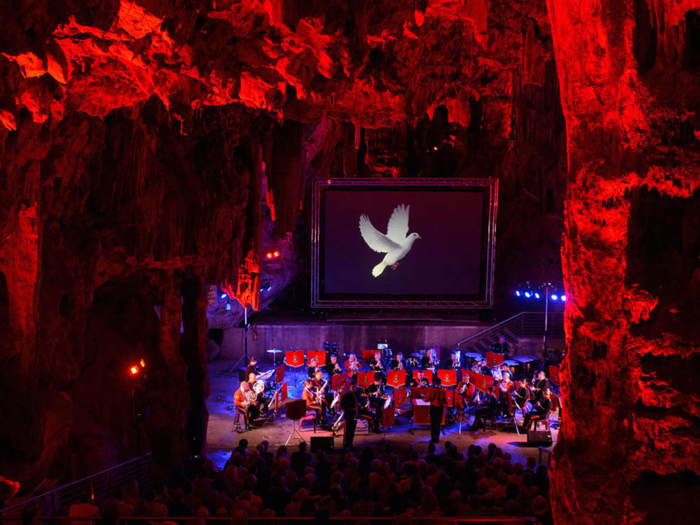
Bounce Below is a set of three giant trampolines nestled inside the Llechwedd Slate Caverns — a former Victorian slate mine in Blaenau Ffestiniog, North Wales. It was created by Zip World, a company specializing in adventure activities.
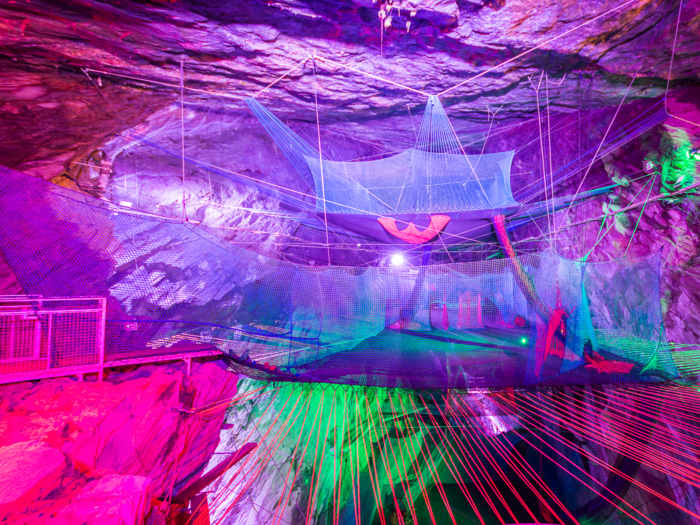
The company also built Zip World Caverns, which is also situated in what used to be mines near the town of Blaenau Ffestiniog in Gwynedd. Guests are suspended up to 100 feet down into the slate cavern.
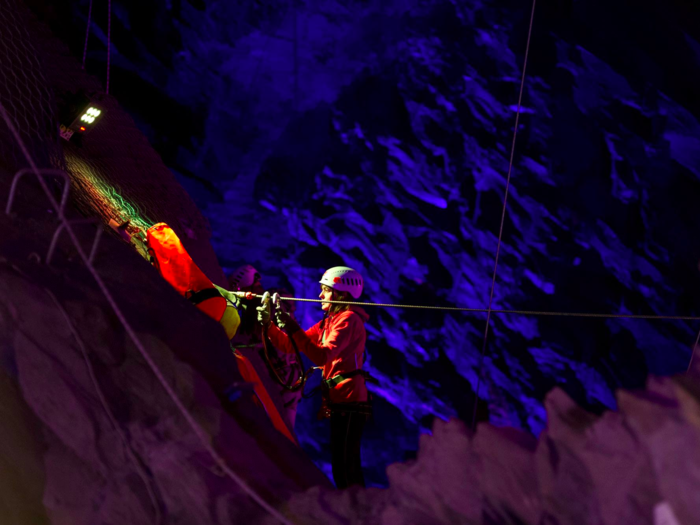
Bluegrass Underground is a monthly concert series inside the Volcano Room of the Cumberland Caverns in McMinnville, Tennessee. Taking place more than 333 feet underground, the venue offers top-notch natural acoustics in a breathtaking cave setting.
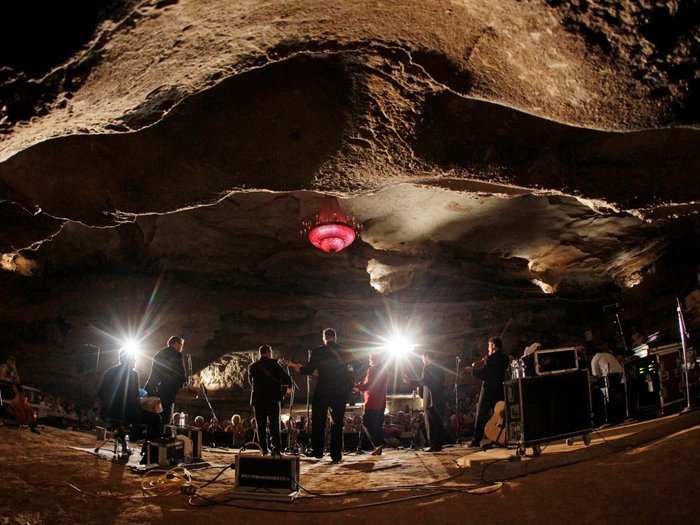
Take a boat ride through the Waitomo Glowworm Caves of Waitomo, on the North Island of New Zealand. A large population of glowworms causes the cave to glitter.
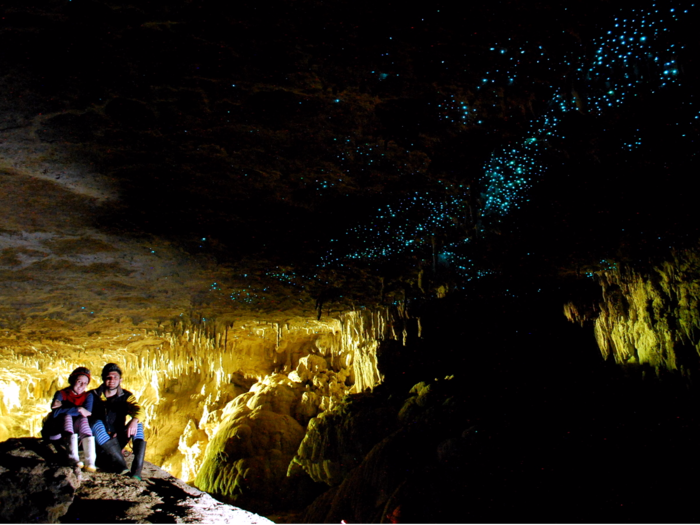
The Alux Restaurant Bar & Lounge serves drinks and authentic Mexican cuisine in a 10,000-year-old cave in Playa del Carmen, Mexico. Gorgeous stalactites and stalagmites surround private vaults, where guests can enjoy a delicious meal.
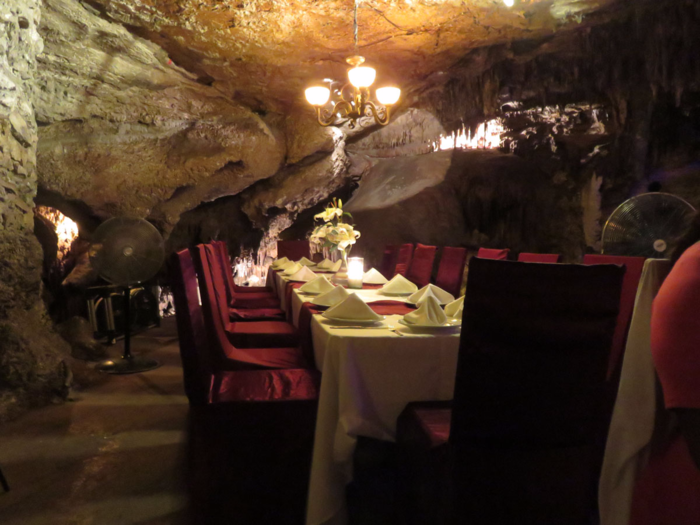
The Postojna Cave in Postojna, Slovenia, is known for its whimsical web of tunnels, passages, galleries, and halls, all of which have a stunning diversity of karst formations. The cave also has several entertainment options, including a concert hall and a train that operates through part of the cave.
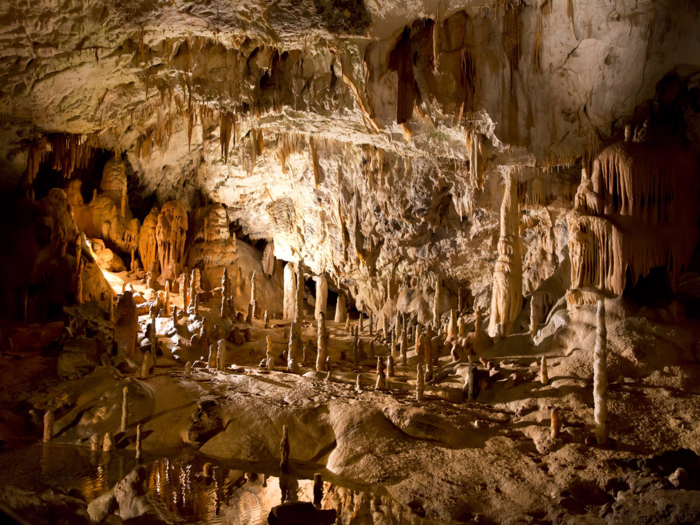
Inside the Formosa Boulevard Station in Kaohsiung, Taiwan, is a 4,500-panel glass artwork by Narcissus Quangliata that is said to be the largest glass-work in the world. Thanks to the stunning kaleidoscope effects of the piece, the area has actually been used as a wedding venue.
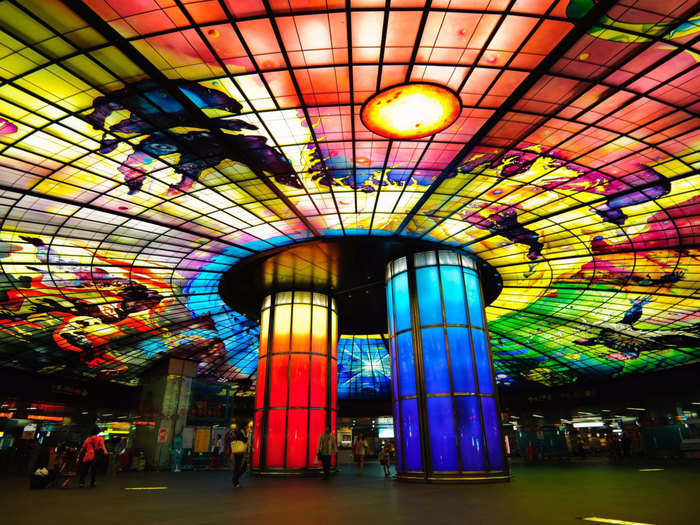
Hang Son Doong (or the Song Doong Cave) can be found in the Qu?ng Bình Province of Vietnam. Classified as the largest cave in the world, it has a width of about 300 feet, a height of 330 feet, and a length of more than 6,000 feet. It has huge skylights and caverns that are big enough to hold entire city streets.
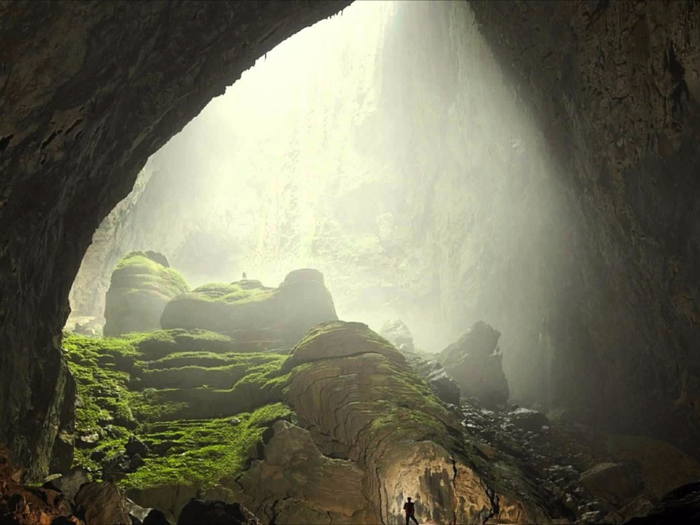
More than 90 of the subway stations in Stockholm, Sweden, have been decorated with sculptures, mosaics, and paintings. The Kungsträdgården metro station houses the relics of the old Stockholm Makalös palace and has an impressive industrial-looking design.
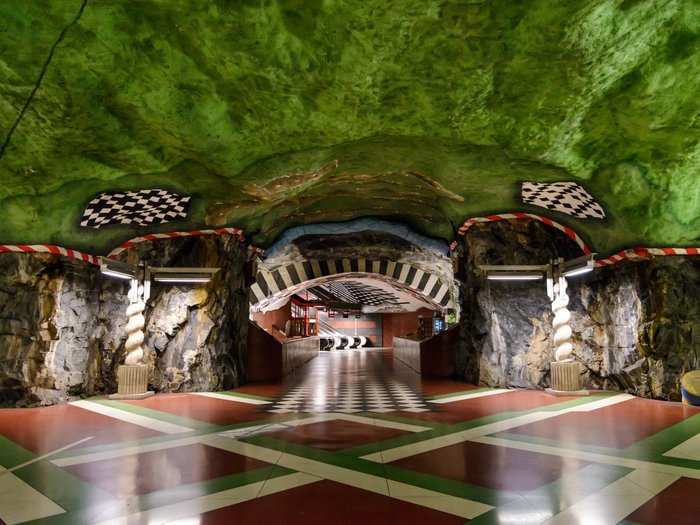
Stretching nearly 800 feet, the Reed Flute Cave, located near Gulin, China, is filled with incredible stalactites, stone pillars, and rock formations that take on a breathtaking look when illuminated with colored lighting.
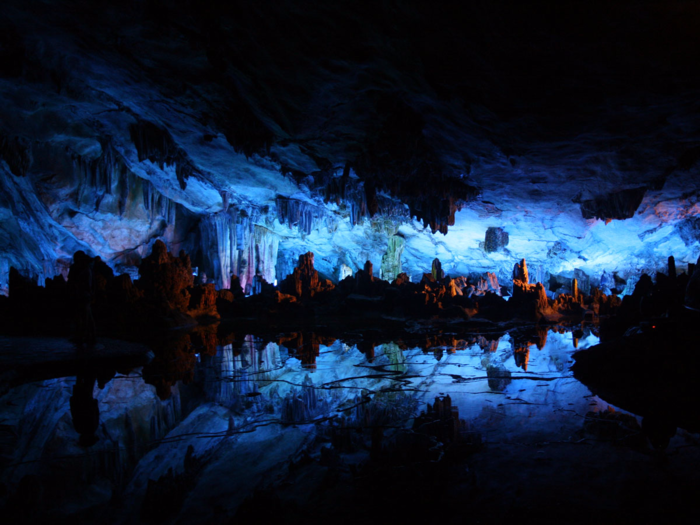
Thanks to temperatures that can reach as high as 104 degrees Fahrenheit, almost all of the residents of the South Australian town of Coober Pedy live underground. The town's residents have created a fascinating submerged world, where you'll find everything from an underground bookstore to a subterranean church.
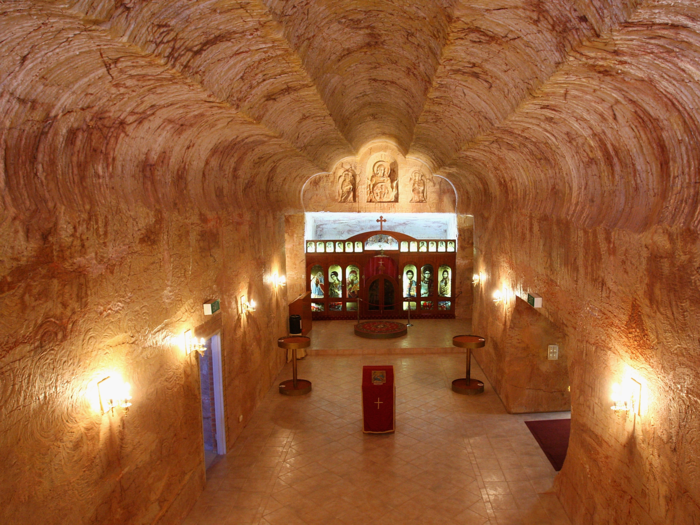
The Puero Princesa Subterranean River National Park in the Philippines has an underground river that stretches more than 26,000 feet within a stunning limestone karst cave system. On underground guided raft trips, you’ll enter chambers that are as large as 390 feet in size.
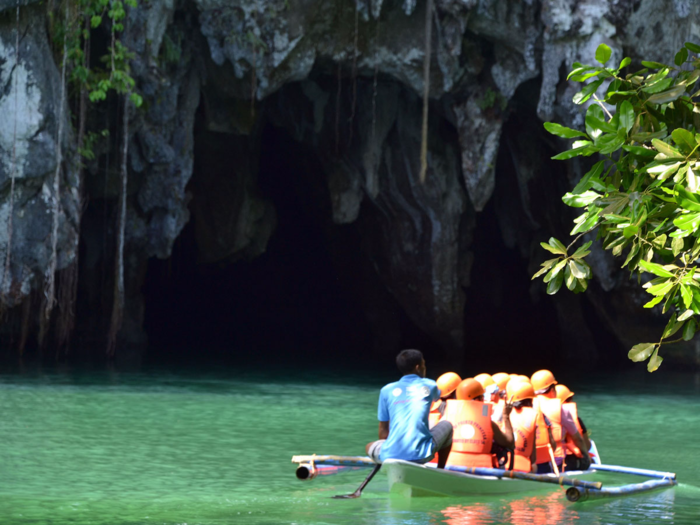
Iceland's Thrihnukagigur Volcano has been dormant for 4,000 years, but it has left behind breathtakingly colorful minerals that can be viewed on hikes through lava fields. On tours that take place from May through September, visitors are taken as far as 400 feet to the bottom of the crater in an open cable lift.
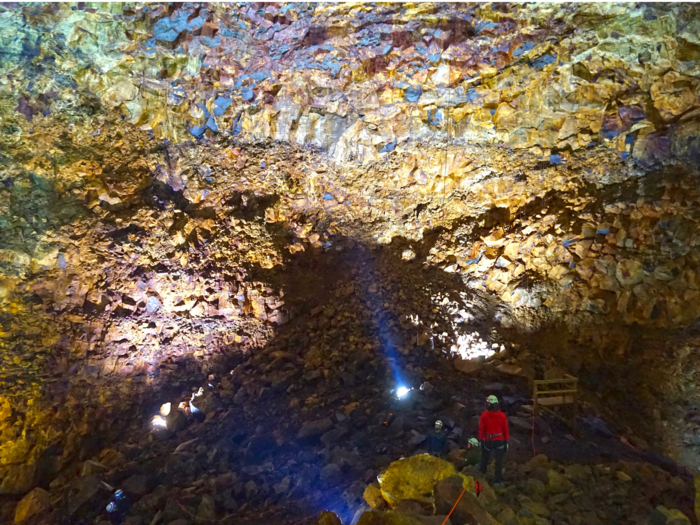
The Salt Cathedral of Zipaquira, Colombia, sits 590 feet below the surface in the heart of a salt mine. Carved salt sculptures and a 16-foot cross adorn a cathedral that gets some 3,000 visitors each Sunday.
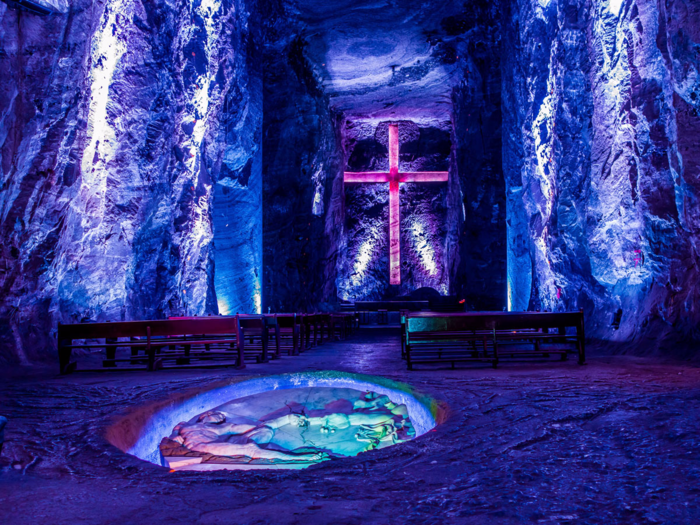
Hidden beneath Paris, France, are the Catacombes de Paris — an eerie network of caves and tunnels housing the remains of nearly 6 million people. Considered the world's largest grave, the catacombs have attracted thousands of visitors, including King Charles X and Napoleon III.
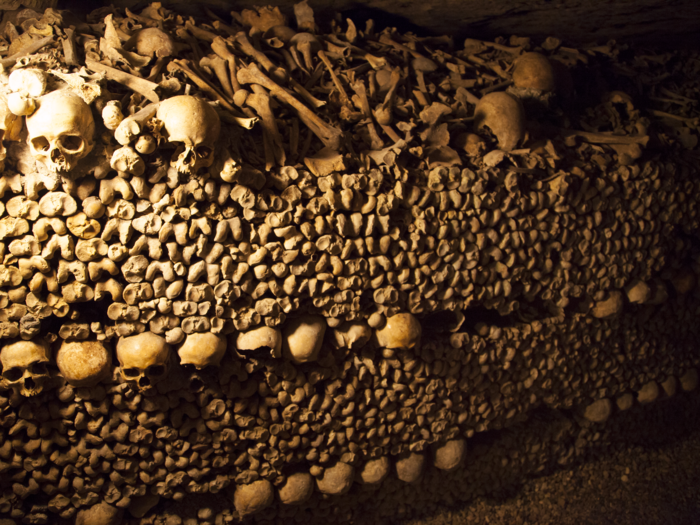
The Batu Caves of Selangor, Malaysia, feature stunning temples and paintings that depict Hindu gods. Before entering the caves, marvel at the enormous statue of Lord Morugan in the entrance.
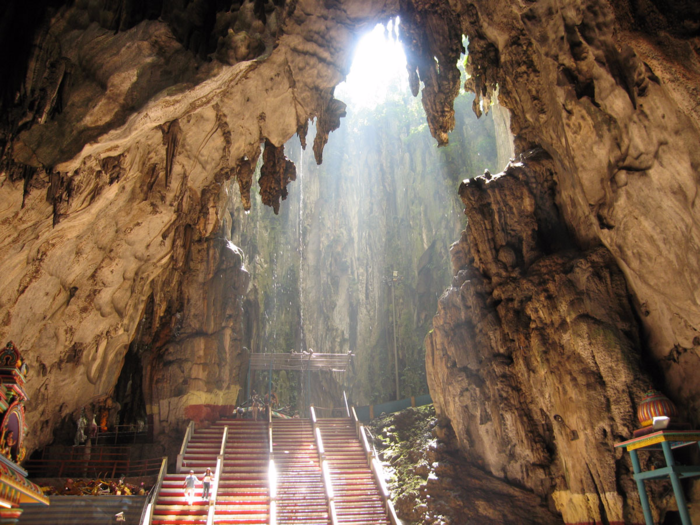
The Basilica Cistern in Istanbul, Turkey, was built by Byzantine Emperor Justinian I. The royal reservoir is said to be able to store up to 24 million gallons of water. Explore its stunning design as you admire its 336 marble columns and its two head of Medusa sculptures.
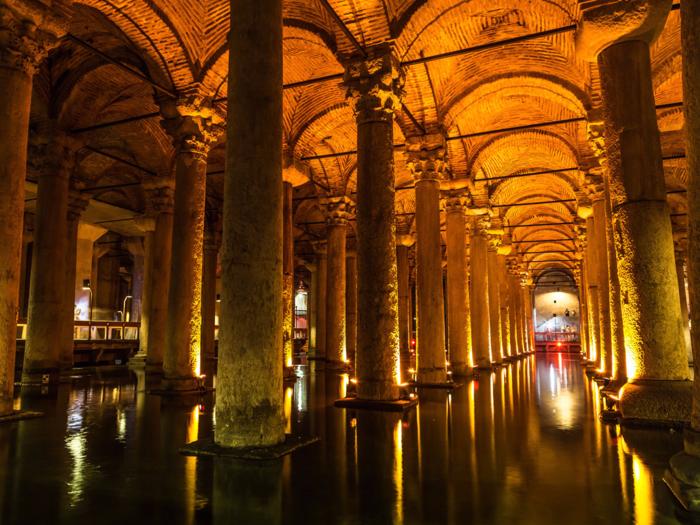
In the deep salt mine of Wieliczka, Poland, altarpieces, chandeliers, and even the ornamented Chapel of St. Kinga were chiseled out of rock salt. According to Travel + Leisure, tours began in the 14th century and have included guests like Copernicus, Goethe, and President George H. W. Bush.
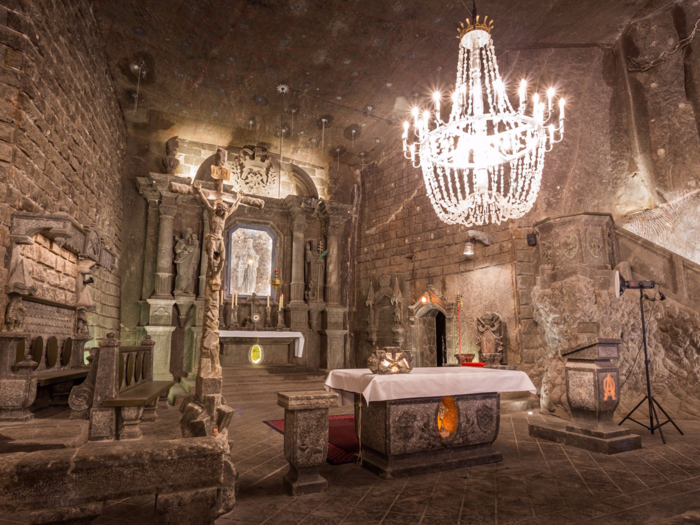
The mine also hosts an underground sanatorium and curated events, including concerts, theater performances, galas, and fashion shows.
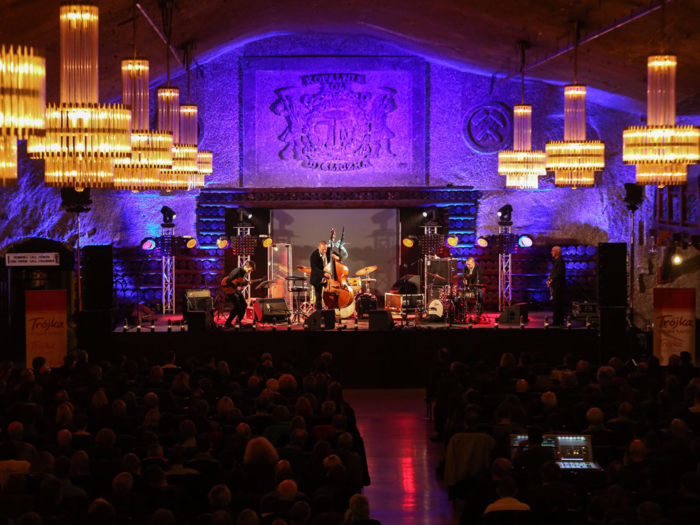
The Cango Caves are found near the town of Oudtshoorn, South Africa, at the head of the picturesque Cango Valley. Dripstone caverns are lined with vast halls and towering formations. Take the adventure tour, where you’ll be led trough hanging crystal gardens adorned with helictites, an active candle-wax column, and incredible cavern chambers.
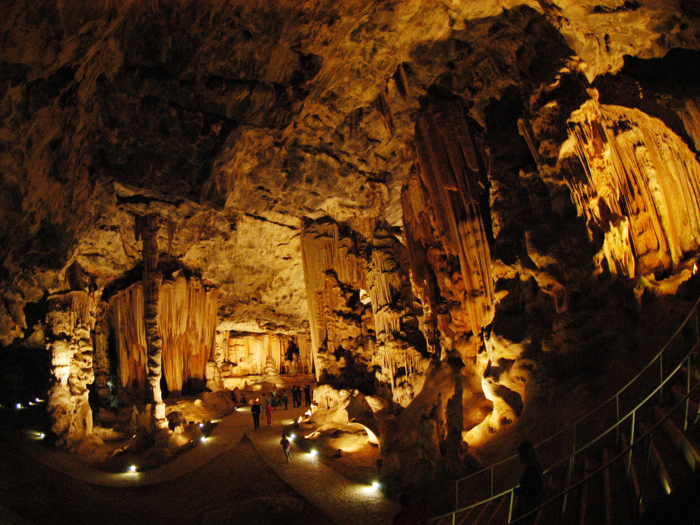
The Dambulla Cave Temple (also known as the Golden Temple of Dambulla) is the largest and best-preserved cave-temple complex in Sri Lanka. Inside, there are Buddhist mural paintings covering entire walls and more than 150 statues dating back centuries.
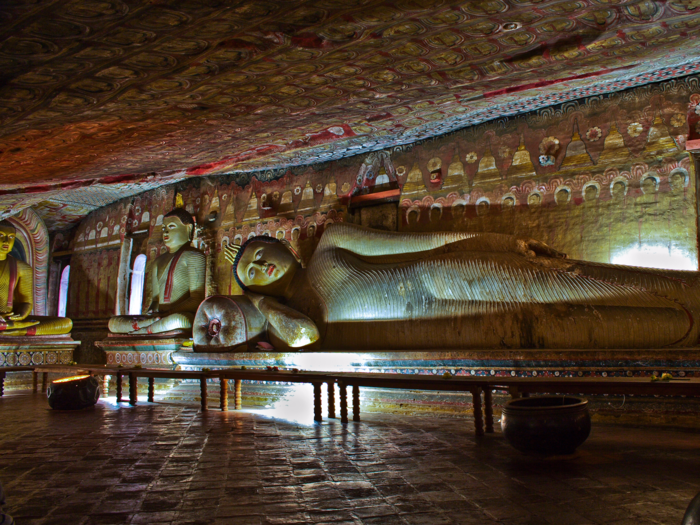
In Turkey's Cappadocia region, there's an array of fascinating subterranean safe houses that were carved from rocks of volcanic ash. Several historic underground cities have been discovered many levels below the surface, revealing networks of tunnels, inclined corridors, and stepped pits.

Enter the sub-street basement corridors of London’s Cabinet War Rooms (also called the Churchill War Rooms) to see what life was like for Prime Minister Winston Churchill during the tense times of WWII. The rooms have remained exactly as they were in 1945, when Churchill and his War Cabinet would meet here to discuss strategy.
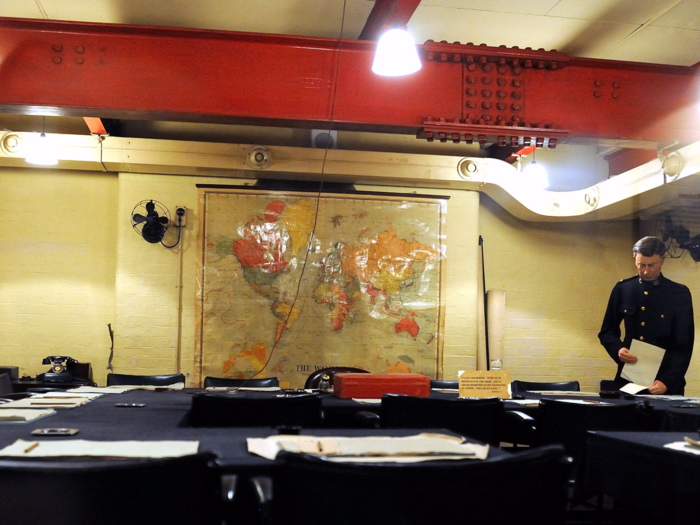
Popular Right Now
Advertisement